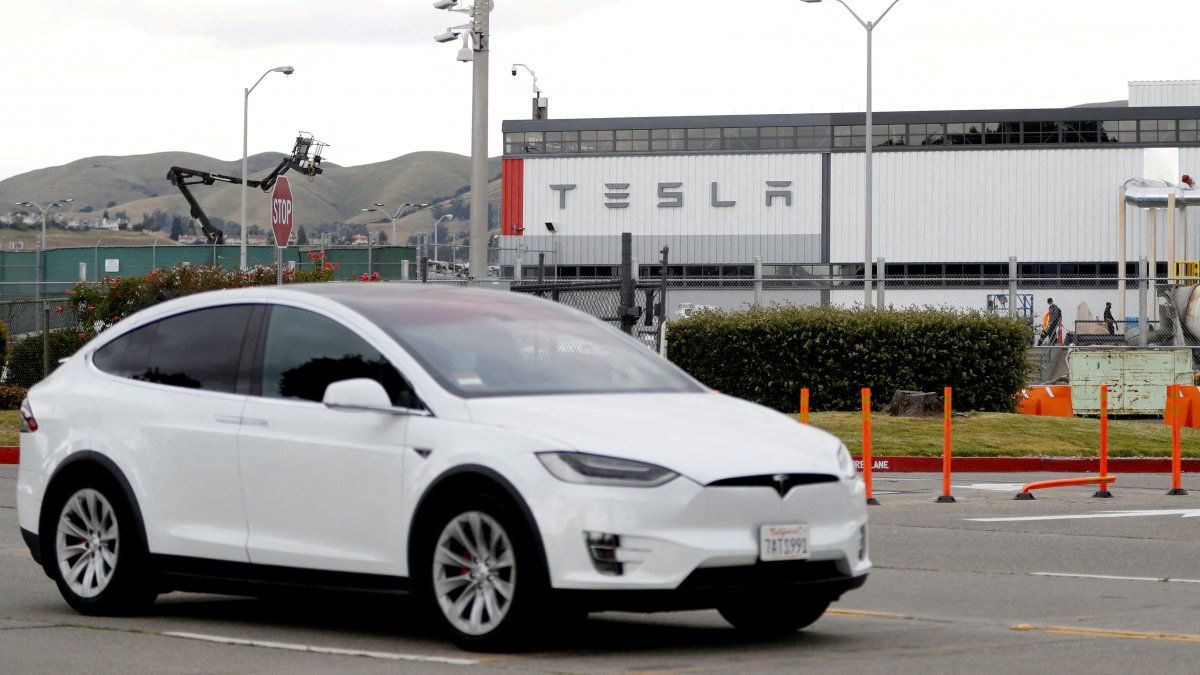A priori, the lower price at which cars are sold abroad may seem like a temptation to consumers. For example, top-of-the-range models from North American brands in the local market cost half, or even less, in the United States. Of course, private importation will require additional costs, such as freight, in addition to the tax burden. There is also speculation about a streamlining of the procedures to obtain the LCM (Model Configuration License); That is, the approval so that they can circulate in Argentina.
Companies in the sector believe that the State will have collection problems. The FOB and CIF value is the basis of all tax calculations, including internal taxes. “Manufacturers and distributors can display invoices from the same manufacturers, with traceable FOB values. How will individuals do it? Factories do not sell to individuals. In the event of under-invoicing, it is the national state that loses revenue and it also generates unfair competition with other actors,” a sector executive told Ámbito. “Be careful with the triangulation of invoices and the black payment of part of the value to under-invoice,” he added, and made a summary of the taxes. basics that a client should pay are: Statistics, Common external tariff, VAT, VAT advance, internal taxes, Profits, Gross Income, etc.. “The price could hardly be more competitive after having paid all these taxes,” he mentioned.
Controversies
In any case, automotive companies are keeping an eye on aspects that may be controversial, linked to compliance with the requirements that are asked of brands licensed in the country, as well as other aspects of Consumer Protection. They even warn about the appearance of “bags” who buy cars in poor condition in all parts of the world, leave them in a free zone and then the buyer must deal with a lack of spare parts or guarantees.
“From the sector we do not see any drawbacks in the modification to the Traffic Law. Everything is feasible as long as they meet the same requirements in terms of active, passive and emissions safety. that are required of the terminals and importers, to market in the local market,” they told this medium from an automotive company with a factory in the country. The manager maintained: “In addition, in the event that a company or individual does it for use commercial -and not private use-, they should also comply with the Consumer Defense regulations in relation to warranty requirements, after-sales servicesand supply of spare parts, so as not to harm consumers”.
Entrepreneurs from the importing brands sector agreed almost exactly with the factories’ position, but they went even one step further. In principle, the established brands and the distributors with a contract are legally responsible for compliance with product warranty, global review campaigns, provision of original spare parts and for the repair capacity via training of mechanics, specific diagnostic and repair tools.
“In the case of imports by individuals, the brands do not have any responsibility for the vehicles that they did not import. What will the individual client do? How can insurance companies insure a car that does not have spare parts available through responsible distributors?” expressed from an importing brand.
“I agree that there is freedom, because we also ask for it, but there are people who believe that bringing a car from outside is the same as bringing an iPhone. It’s perfect, but asking you for a replacement iPhone screen through Courier is nonsense But if you have a crash and you have to change 50 parts of the car, starting with the hoodwhich weighs a lot and is gigantic, you will not be able to bring it. Because we bring by container, and we bring parts for all the models we bring, and we bring volume. It’s not easy, it’s not blowing and making bottles. I’m not saying it can’t be done, because it can be done,” they mentioned from that same brand.
Likewise, in another importing brand they expressed: “Many people are going to buy first or second-hand thinking that it is a car that we bring, maybe if they bring us a model that we do not have. And when they go to the dealership they are to say: ‘Look, this car has no spare parts. I can’t read this car, I don’t have the tools.’. We decide what to bring based on what we want and based on what the brand decides. “After having analyzed the Argentine market, after seeing Argentine fuels.”
“Imagine that you bring a European car that exceeds the Argentine standard and that’s why your catalysts get damaged because the Argentine fuel is Euro 5, it’s not Euro 6 like in Europe. That’s why your injectors get clogged. All those little things that people does not know, the Government should know them too,” he added.
In that sense, among the local market requirements are those for fuels with Euro 5 emissions and active and passive safety requirements (ABS/ESP/SBR/Airbags/crash test/etc). For brands, it is almost impossible to control that an individual when importing a vehicle complies with all current regulations.
Tesla and the bolseros
Perhaps, the option to import directly is a solution for those who want to bring a vehicle from a brand that is not sold in Argentina. For example, from Tesla. When a sector executive was consulted about this possibility, he said: “It could be an alternative. But Tesla is not sold in Argentina because Tesla did not decide to settle in Argentina. In other words, If Milei has good vibes with Elon Musk, they can set up an office, they can set up a spare parts warehousethey can put on workshops, which is what we all do. “Train the technicians, bring the tools, take courses.”
The sector also warns about the existence in some countries of the world of low-value 0KM cars due to numerous accidents such as floods, hail, aging, manufacturing defects, etc. Who can validate the quality of the vehicle that enters the country from any source not sold by a recognized automotive manufacturer?, they ask.
Many of these cars can also be purchased by called “bolseros”, which look for “individual clients” who will ultimately be the importers in good faith of automobiles that are outside the traditional commercial circuit. “The time of a car sitting in a port for months also results in problems (paint, optics, fuel systems, tires). After taking the customers’ money, they disappear. The customer buys in good faith, but will have no support since these are vehicles out of warranty. Since they are the importers themselves, they cannot take legal action,” they told this medium from an importing brand.
“It’s more or less the same as someone who rents a store, has people in white, pays for the authorization, the fire extinguisher, the police. And suddenly someone appears, puts a blanket on the door of your store and sells what same as you. Without paying anything. So I think that on equal terms there is no problem. But whoever brings the cars will have to know that they will have to take care of everything that has to do with the after-sales. and the useful life of the car,” said a terminal executive.
Source: Ambito
I am an author and journalist who has worked in the entertainment industry for over a decade. I currently work as a news editor at a major news website, and my focus is on covering the latest trends in entertainment. I also write occasional pieces for other outlets, and have authored two books about the entertainment industry.




